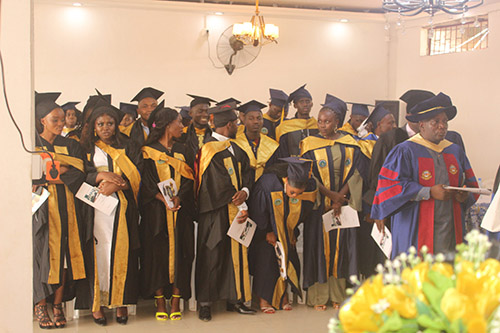This programme delivers the necessary knowledge and skills required for an integrated study and evaluation of a prospect, leading to a viable oil and gas field development plan.
Drawing upon a long-established track record of excellence in teaching and research, the MSc Petroleum Engineering is delivered in affiliation with the University of Bamenda along with industry-based tutors covering a broad range of courses including the fundamentals of petroleum geoscience, enhanced oil recovery, reservoir simulation and well and production engineering. There is also a particular focus on formation evaluation and reservoir engineering and simulation.
The MSc Petroleum Engineering develops your skills so you are able to appraise and select the appropriate technologies for safe production recovery of hydrocarbon oil and gas and includes hands-on experience of using industry-standard simulation software in all aspects of petroleum engineering.

Course content
Students on the Petroleum Engineering MSc undertake 12 taught courses and one projects.
Taught courses
Reservoir engineering
Behaviour of reservoir rocks, fluid properties, reserve estimation, fluid flow through porous rocks and drive mechanisms.
Geoscience for Petroleum Engineering
Introduction to geoscience in order to understand the terminology used by geoscientists, to use geoscience data to calculate the volume of hydrocarbons in the subsurface.
Drilling engineering
Fundamental concepts and techniques used in drilling engineering, design requirements of well planning and construction, optimise the design of a drilling program.
Formation evaluation
Petrophysical analysis of wireline log data, different tools and their uses, interpretation of logs and reservoir zonation.
Reservoir simulation
Predicting reservoir dynamic behaviour: theoretical, numerical and practical flow simulation for history matching and forecasting.
Production technology
Well completions and servicing; artificial lift; perforating; formation damage; reservoir stimulation; sand control; surface facilities.
Well test analysis
Fundamentals and applications of pressure versus time and pressure versus depth for improved reservoir description and management.
Projects
Field development project
Integration of all taught elements of the programme in determining a development strategy or plan based on real field data.
Individual project
Independent research project on a topic (related to petroleum engineering) of the students choice.
Petroleum economics
Economic concepts involved in project evaluation; asset value, risk management, making informed decisions and screening and ranking of projects.
Admission requirement
A bachelor’s degree from an accredited university (or equivalent) recognized by the ministry of Higher Education
